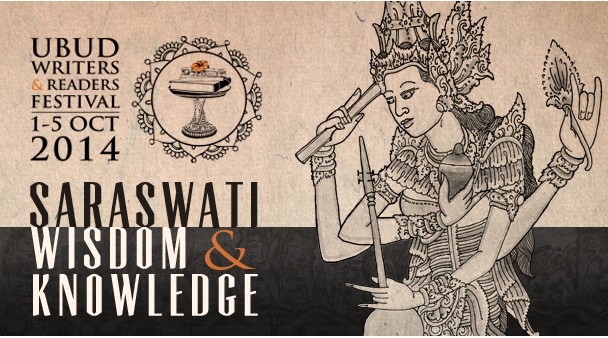The Ubud Writers and Readers Festival, held annually in Bali, Indonesia, is Southeast Asia’s largest (and arguably its most well-known) literary festival. This year, the festival featured about 150 writers hailing from more than 25 different countries. Its eleventh iteration, however, proved an even more festive occasion than usual, overlapping with both Saraswati Day—a holy day in the Balinese Hindu calendar dedicated to Saraswati, the goddess of wisdom and knowledge—and a series of religious ceremonies held at the nearby Gunung Lebah Temple. The sun was hot, spirits were high, and the roads were packed as religious and literary pilgrims crisscrossed the small town of Ubud from morning to evening to attend their respective events.
Among the many recurring topics of conversation and debate at the festival was the growing global dominance of the English language. Japanese novelist Minae Mizumura confided her regrets about choosing to write in Japanese rather than English (she was capable of doing both, having spent twenty formative years in the United States), thus forgoing the opportunity to reach the wider audience that writing in English would have afforded her.
And yet, despite initial regrets, Mizumura affirmed her commitment to write in Japanese, noting not only that she has had a far greater impact on Japanese literature than she could have ever had on English literature, but also that she regards writing in a non-English language as a sort of personal moral obligation. Asking her audience to imagine a world in which the best and brightest spoke only English—a horrible, pitiful world, she opined—she regarded her writing as an attempt to save us from that awful fate. READ MORE…

